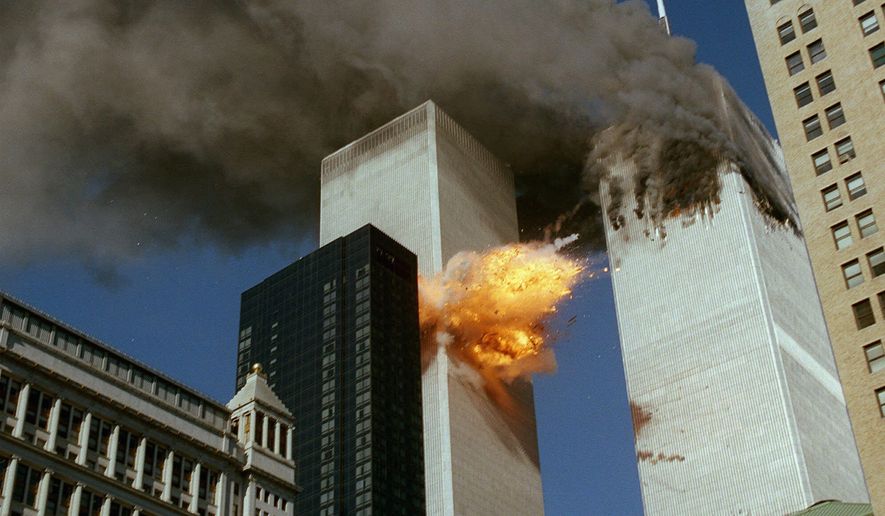OPINION:
Two recent interviews have been the topic of lively debate within the so-called “foreign-policy community.” First, President Obama told The New York Times’ Thomas Friedman that he envisioned a world in which wars end with “no victor, no vanquished.” Can you imagine Franklin Roosevelt or Winston Churchill embracing such an idea? Even more inconceivable: that those who proclaim themselves jihadis would do anything but laugh their heads off (you should excuse the expression) if they heard it.
Next, Hillary Clinton told The Atlantic’s Jeffrey Goldberg, “Great nations need organizing principles,” and that Mr. Obama’s motto, “Don’t do stupid stuff,” is “not an organizing principle.” A spokesman for Mrs. Clinton then said that she and the president would get together at the vacation resort of Martha’s Vineyard and “hug it out,” a means of resolving policy disagreements that Roosevelt and Churchill also would likely disdain.
Lost in the shuffle: a more substantive interview, conducted by veteran journalist James Kitfield, in the online journal Defense One, with Lt. Gen. Michael Flynn, chief of the Defense Intelligence Agency.
DIA directors tend to be taciturn, but Gen. Flynn is leaving his post, and that appears to have loosened his lips. He told Mr. Kitfield that the “international environment” has become “uncertain, chaotic and confused”; that we have entered “a very dangerous era”; and that we are in a period of conflict that may be both “prolonged” and “unprecedented.” In other words: He’s trying to sound an alarm.
A quick tour of the horizon: In Syria and Iraq, jihadists who see themselves as Osama bin Laden’s heirs have been battling jihadists loyal to Iran’s theocrats and their client, Syrian President Bashar Assad. Christians, Yazidis and other minorities are being butchered. Kurds, with belated help from the Obama administration, are fighting back.
In Nigeria, self-styled “soldiers of Allah” are enslaving women and burning churches, often with congregants inside. Islamist militias have collapsed Libya’s fledgling post-Gadhafi government. Jihadis also are active — mainly killing Muslims viewed as apostates — in Mali, Somalia and Yemen.
Israel, the only nation in North Africa and the broader Middle East not ruled by Muslims, is explicitly threatened with genocide by Hamas, Hezbollah and Iran. Like the Kurds, Israelis have been fighting back. The Obama administration has provided support — although not without ambivalence.
According to Gen. Flynn, in 2004 there were 21 “Islamic terrorist groups spread out in 18 countries.” Today, by contrast, there are 41 “Islamic terrorist groups spread out in 24 countries.” The result, he said, is that Americans today are in more danger than they were prior to the attacks of Sept. 11, 2001.
It’s true that some jihadi groups are focused on local wars, but many, if not most “have the intention to attack Western interests, to include Western embassies and in some cases Western countries,” Gen. Flynn said. Abu Bakr al-Baghdadi, self-declared “caliph” of the Islamic State, has directly threatened Americans. Some of his warriors have Western passports. That will make it easier for them to enter Europe and the United States at a time of their choosing.
Underlying this global conflict, Gen. Flynn said, is a “core” ideology that is “spreading, not shrinking.” Having interrogated combatants during the years he served as intelligence chief for Joint Special Operations Command in Iraq and Afghanistan, he concluded: “These are people who have a very deeply rooted belief system that is just difficult for Americans to comprehend. Just think about the mindset of a suicide bomber.”
Think, too, about the fact that those who postpone blowing themselves up are developing new and improved martial skills. “They write about and share ’Lessons Learned’ all the time,” Gen. Flynn said. He recalled that not long after Sept. 11, 2001, anthrax was used in an act of terrorism that killed five people. “If that anthrax had been dispersed more efficiently,” he said, “it could have killed a quarter-million people.” Also worth bearing in mind: Just eight years separates the first attack on New York’s World Trade Center in 1993, in which six people were killed, from the 2001 mass murders.
The 2011 death of Osama bin Laden led President Obama and many left-of-center analysts to conclude that the “tide of war is receding.” According to Gen. Flynn, few in the intelligence community shared that hopeful view. “We saw all this connective tissue developing between these [proliferating] terrorists groups. So when asked if the terrorists were on the run, we couldn’t respond with any answer but ’no.’ When asked if the terrorists were defeated, we had to say ’no.’ Anyone who answers ’yes’ to either of those questions either doesn’t know what they are talking about, they are misinformed, or they are flat-out lying.”
Such warnings from an outgoing DIA director should be attracting attention — at least as much as Mr. Obama’s (John) Lennonist imaginings and Mrs. Clinton’s belated recognition that she had spent four years helping sail a rudderless ship. Apparently, however, few in the chattering classes agree.
At the end of the interview, Mr. Kitfield asked Gen. Flynn if there was any truth to reports that he was being forced out of the DIA. He didn’t quite deny it. “Maybe it did get to the point where I was a little too far out in front of my headlights,” he replied. “I had a meeting with my boss, and the message was ’it’s time for you to go,’ and my reaction was to salute and say, ’OK, no problem.’”
I fear that whoever is chosen to replace Gen. Flynn will decide it’s only prudent to tell the president and his closest advisers what they want to hear, rather than what they need to know. Americans will then be in more danger. But we will have been warned.
Clifford D. May is president of the Foundation for Defense of Democracies.




Please read our comment policy before commenting.